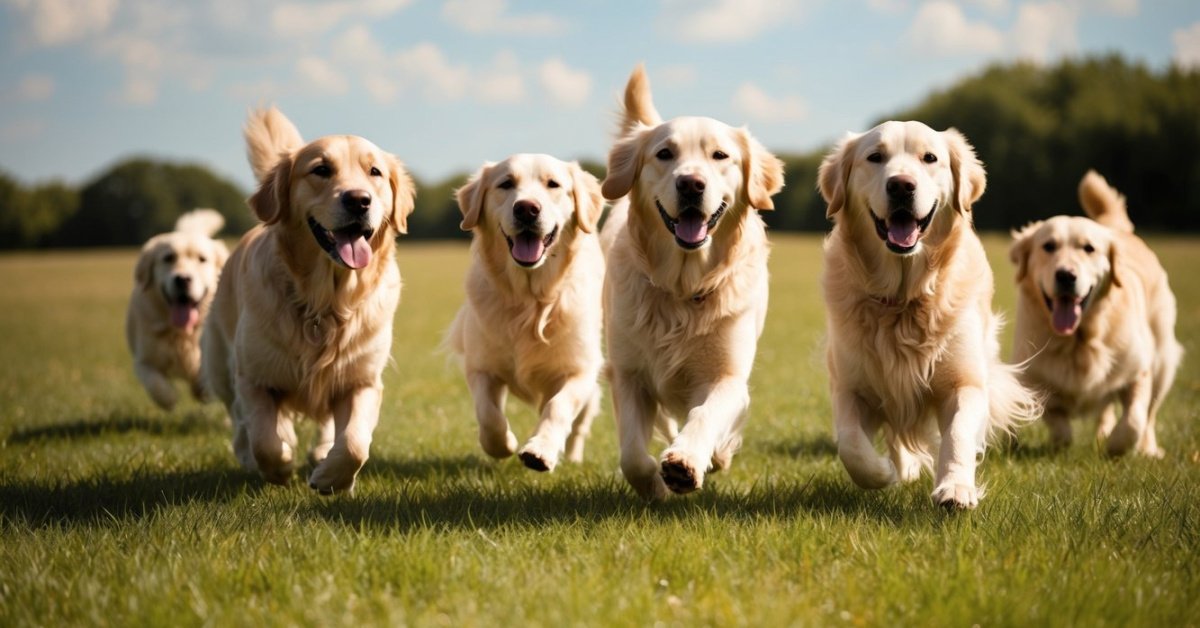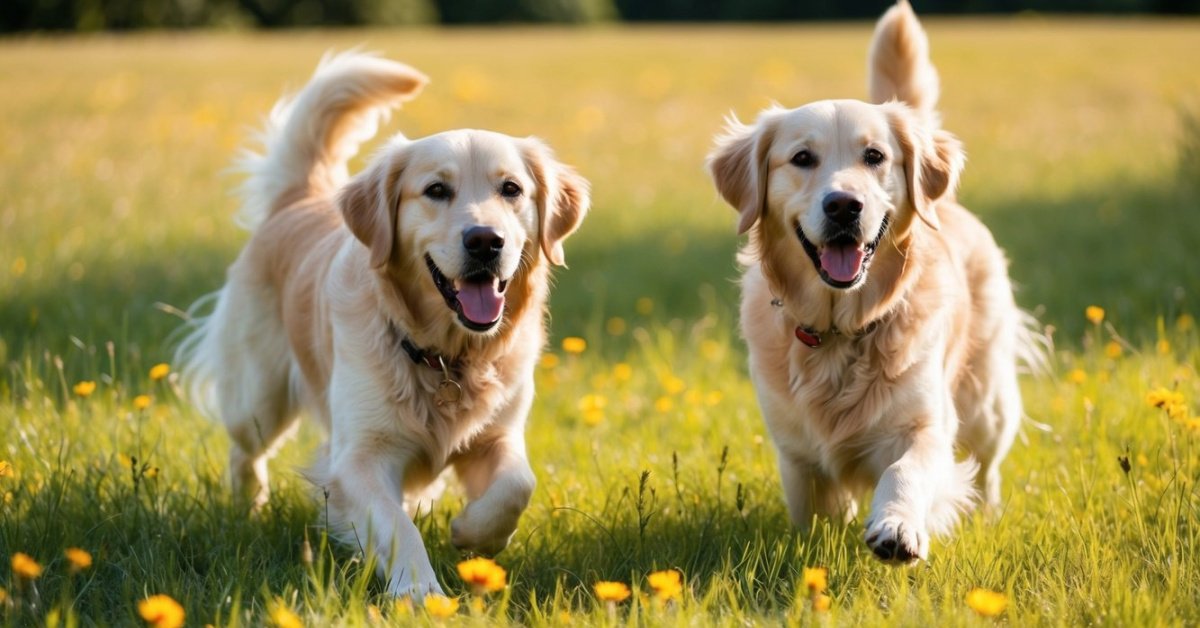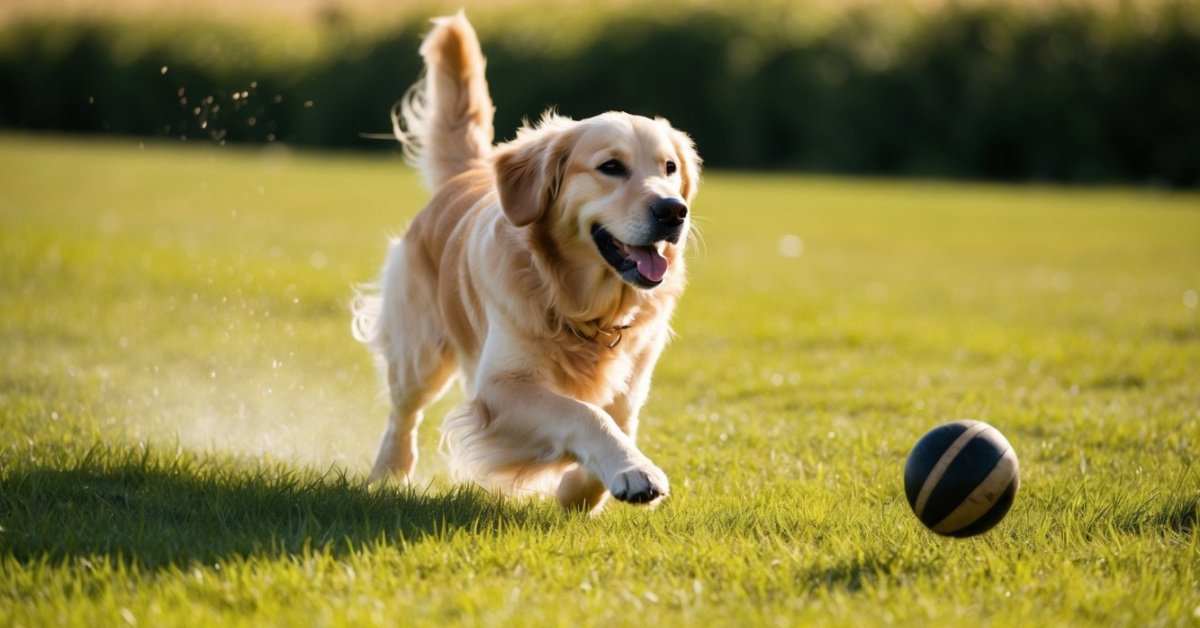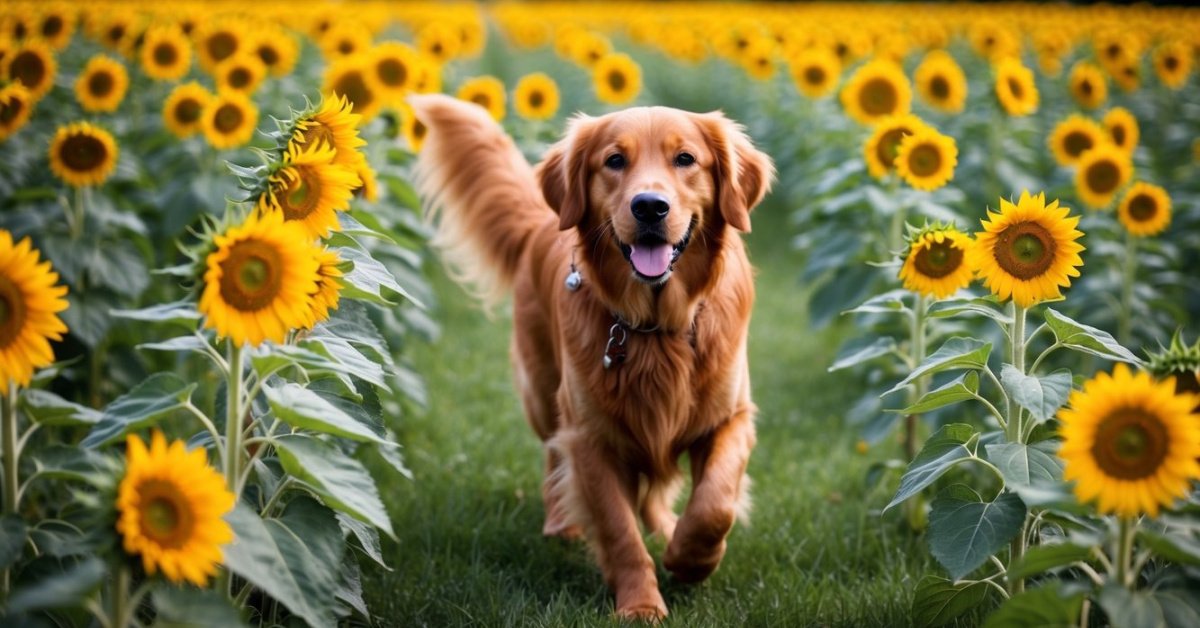Effective Techniques to Stop Your Golden Retriever Puppy from Crying: Tips from a Dog Shelter Expert
Welcoming a new golden retriever puppy into your home is an exciting time, but it can also be overwhelming, especially when your new furry friend can’t seem to stop crying. Don’t worry, you’re not alone! Many new golden retriever owners experience this. Understanding the reasons behind your puppy’s crying and learning the appropriate methods to comfort and soothe them is crucial in establishing a happy and healthy relationship with your furry friend. In this article, I’ll share my experience working with thousands of dogs through dog shelters and breeders to provide you with effective techniques to stop your golden retriever puppy from crying. Whether you’re a first-time dog owner or an experienced one, keep reading to learn how to make your new furry friend feel at home.
Understanding the reasons behind why your golden retriever puppy is crying
As a seasoned dog expert who has worked with thousands of dogs through dog shelters and breeders, I understand the importance of understanding your golden retriever puppy’s crying behavior.
Firstly, it is important to note that puppies cry for a variety of reasons. They could be hungry, thirsty, in pain or simply seeking attention. As an owner, it is crucial to identify the root cause behind their crying in order to address it effectively.
For instance, if your puppy is hungry or thirsty you should ensure they have access to food and water regularly throughout the day. If they are experiencing pain due to teething or other health issues then consulting with a veterinarian would be necessary.
Additionally, young puppies require plenty of attention and socialization as well as adequate training techniques from their owners. This will help them become more confident and less anxious while also building trust between owner and pup.
Providing love and affection along with proper care can go a long way towards reducing stress levels which may contribute towards excessive crying behaviors in golden retriever puppies.
In conclusion there are many different factors that can lead up until why your Golden Retriever Puppy might cry but taking time out daily for playtime along with providing basic needs such as food/water/attention/training will help reduce this common issue among new pet owners!
Methods to comfort and soothe a crying Golden Retriever puppy
As a seasoned dog trainer who has worked with thousands of dogs through shelters and breeders, I can attest to the fact that stopping a golden retriever puppy from crying is not an easy feat. However, there are several methods that you can use to comfort and soothe your furry friend.
Firstly, it’s important to understand why your golden retriever puppy is crying. Puppies cry when they’re hungry, thirsty or need their diaper changed. They may also cry if they’re feeling lonely or scared.
If your pup is crying because he’s hungry or thirsty, ensure that his food bowl and water dish are always full throughout the day. Additionally, make sure to change his diaper regularly as this could be causing discomfort.
To alleviate loneliness in puppies who have just been adopted into their new home environment where they might feel insecure at first sight of unfamiliar surroundings; it’s recommended for owners to provide more attention by playing games such as fetch in order for them bond with each other quickly
Lastly but not leastly , If all else fails then consider using white noise machines which mimic sounds from nature like waves crashing on rocks – these natural sounds will help soothe even the most distressed pups!
Establishing a consistent routine to minimize the puppy’s crying
If you’re a new dog owner, dealing with a crying puppy can be overwhelming. However, establishing a consistent routine is key to minimizing your golden retriever puppy’s crying and creating a happy home for both you and your furry friend.
Firstly, it’s important to understand that puppies cry as part of their natural instinct. They are seeking comfort and attention from their pack. As the owner, it’s your responsibility to provide them with this comfort while also teaching them independence.

« golden retriever puppy starter kit
oldest golden retriever ever »
One way to establish consistency is by creating set meal times for your puppy – ideally three times per day at regular intervals. This not only helps with potty training but also gives the pup something predictable in their daily life.
Additionally, setting up designated playtimes will help create structure in the pup’s life which reduces anxiety and stress levels resulting in less whining overall from boredom or feeling overwhelmed due to all of the new stimuli they’re experiencing.
Another strategy is crate training which provides an enclosed space that feels safe for dogs when left alone or during bedtime hours where owners may wish not have them on furniture or roaming free throughout house before being fully trained how they should behave indoors without direct supervision from humans yet still have freedom within limits such as playing inside gated areas outside where possible (or even just leashed).
Incorporating these routines into daily life takes time but pays off by reducing whining: remember that puppies are like children who thrive on routine so staying consistent will help guide them towards adulthood confidently while encouraging good behavior patterns along way!
Training techniques to discourage excessive crying
As someone who has worked with thousands of dogs through dog shelters and breeders, I know that training techniques to discourage excessive crying in golden retriever puppies are essential. Not only does it help the puppy learn appropriate behavior, but it also strengthens the bond between owner and pup.
Firstly, owners should understand that crying is a natural behavior for puppies as they adjust to their new environment. However, if left unaddressed, excessive crying can lead to separation anxiety or other behavioral issues down the line.
To begin training a golden retriever puppy not to cry excessively, owners must establish clear boundaries and routines from day one. This means setting designated playtime and rest periods throughout the day so that your pup knows when it’s time to be active versus calm.
When your puppy begins to cry during rest periods or at night-time sleeping arrangements in his crate or designated area for sleep on a bed nearby you can use positive reinforcement by gently reassuring him with verbal praise while ignoring any excess noises he makes until he stops then reward him right away with treats after calming down without any noise as this will encourage future good behaviour patterns
Another technique is distraction therapy where you give them toys like stuffed Kongs filled with peanut butter or chewable bones so they have something else engaging besides whining for attention from their owner.
In conclusion, while stopping excessive crying in golden retriever puppies may seem daunting at first; however consistent routine-building practices such as establishing clear boundaries accompanied by positive reinforcement will go a long way towards shaping healthy habits overtime leading towards more harmonious relationships between pet owners & pets alike!

When should you seek professional help or advice for a persistently crying puppy?
As a seasoned dog trainer who has worked with thousands of dogs through shelters and breeders, I have seen my fair share of persistently crying puppies. While it can be tempting to try to tough it out and wait for the puppy to “grow out” of their crying phase, there are times when seeking professional help or advice is necessary for both the puppy’s well-being and your own sanity.
Firstly, if your golden retriever puppy is persistently crying despite having all their basic needs met (food, water, shelter), this could be an indication of an underlying medical issue. It’s important to take them to a veterinarian as soon as possible in order to rule out any health problems that may be causing them discomfort or pain.
Secondly, if you have tried everything from crate training to positive reinforcement techniques and your pup still won’t stop crying after several weeks or months have passed by – then it may be time for professional intervention. This could mean seeking advice from a certified dog trainer who specializes in dealing with separation anxiety issues or behavioral problems like excessive vocalization.
Lastly but not least- don’t forget that raising a new furry family member takes patience! It can take some pups longer than others before they feel comfortable enough in their new surroundings which means taking extra care during those first few weeks as they adapt into their new environment will pay off long term!
In conclusion- while it may seem daunting at first when faced with an inconsolable golden retriever pup – remember that there are always resources available whether its medical attention from trained veterinarians or expert knowledge provided by experienced trainers. With persistence & dedication on both ends (yours & theirs) we can make sure every pup gets the happy life they deserve!

Conclusion
Caring for a golden retriever puppy can be a rewarding, yet challenging experience. With the right combination of understanding, patience and consistent training however, your pup’s crying will become less frequent over time. Be sure to reach out to breeders or dog professionals if you feel overwhelmed with managing your puppy’s cries – there are tons of resources available to help get you through this difficult phase in both yours and your pet’s life!








![PetDroid Interactive Dog Toys Dog Ball, [Newly Upgraded] Durable Motion](https://m.media-amazon.com/images/I/41P-nlk1L0L._SL500_.jpg)



